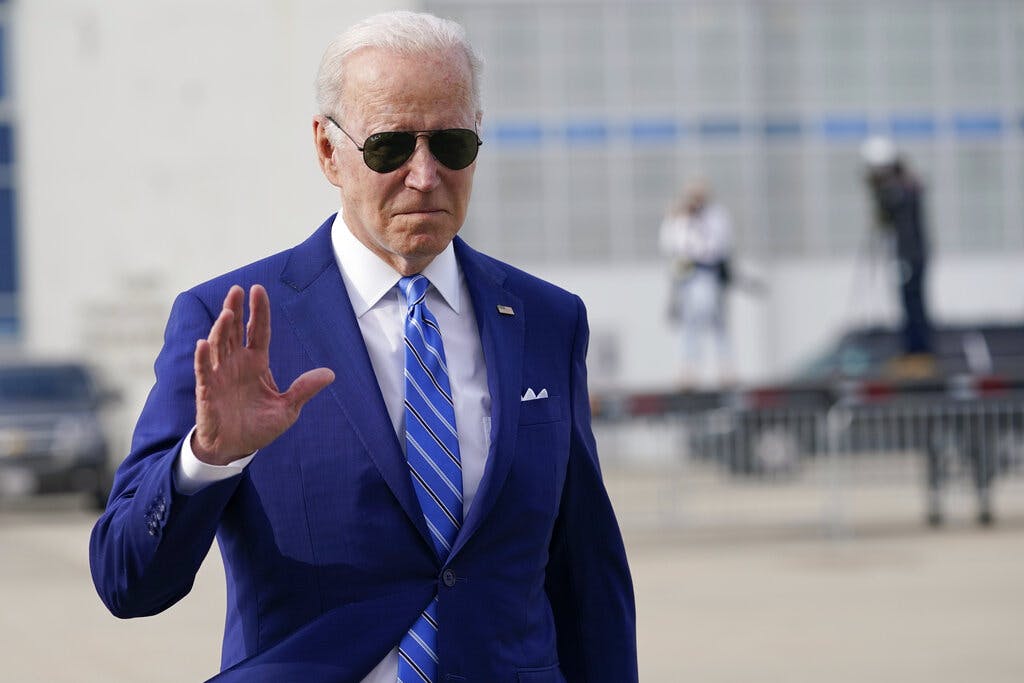A Short History of Genocide Law
We don’t mind saying that we share Mr. Biden’s horror at Russia’s crimes. Yet we also share the long record of doubt in respect of the genocide convention itself, and what obligations it imposes on America.

President Biden’s declaration this week that Russia’s invasion of Ukraine constitutes genocide strikes us as an error in judgment. It’s the kind of error, we imagine, that Secretary of Defense Robert Gates was talking about when he warned that Mr. Biden “has been wrong on nearly every major foreign policy and national security issue over the past four decades.” This one is classic Biden, an error swaddled in moral smugness.
Mr. Biden made his error on Tuesday without any formal process among either his own camarilla or Congress. He spoke at an ethanol plant in Iowa. “Yes, I called it genocide,” he then told reporters, “because it has become clearer and clearer that Putin is just trying to wipe out the idea of being able to be Ukrainian and the evidence is mounting.” Added he: “We’ll let the lawyers decide internationally whether or not it qualifies.”
This strikes us as a bit cavalier. We don’t mind saying that we share Mr. Biden’s horror at Russia’s crimes. Yet we also share the long record of doubt in respect of the genocide convention itself, and what obligations it imposes on America. Whether or not Russia is guilty of genocide, Mr. Biden’s eagerness to accuse Mr. Putin on this head appears to be at odds with his avowed caution to avoid “World War III” by a direct military conflict between America — or NATO — and Russia.
Would a formal designation of genocide trigger just such a confrontation? For years presidents avoided “using the word ‘genocide,’” the AP’s Ellen Knickmeyer observes, to avoid “pressure on them to act” in mass killings against groups of persons. That was why, President Obama’s ambassador at the UN, Samantha Power, contends, the Clinton administration refrained from calling the 1994 Rwanda atrocities a genocide.
In 1999, though, President Clinton used the term genocide to describe Serb atrocities against Albanians at Kosovo. NATO airstrikes followed, forcing the Serbs to withdraw. Although Mr. Clinton did not invoke the genocide convention, the intervention conformed with its terms, which oblige its signatories “to prevent and to punish” genocide, recognizing it as “a crime under international law.”
Ambiguity whether the convention requires America to act against genocide is one reason it took the Senate 40 years to approve the treaty. Senator Helms of North Carolina opposed it because America ought not “submit itself to any international regime of law” subjecting it to “a group of nations which do not have our legislative history and goals.” Others feared it might ensnare Americans in undeserved overseas prosecutions.
When the Senate voted in 1986 to ratify the convention, the Wall Street Journal noted a loophole, inserted by the Soviets in 1948, that exempts from the pact “political genocide.” This rendered the treaty “worse than toothless,” the Journal reckoned, as even when genocide strikes “one ethnic or religious group,” the perpetrators “can claim this is merely political genocide.” Mr. Putin’s lawyers are likely aware.
The Journal’s visionary editor, Robert Bartley, later decried another high-minded effort to entangle America in a globalist justice scheme, the International Criminal Court. Mr. Clinton had signed up for the venture, while President George W. Bush took us out of it in 2002. The court’s prosecutor, Bartley observed, would be tasked with fighting not only genocide, but, even more broadly, the crime of “aggression.”
This prosecutor would be “literally irresponsible,” Bartley fumed, “not accountable to any democratic authority or even the United Nations Security Council.” Worse, the court was likely to extend a trend of “anti-American campaigns dressed up as judicial grievances,” Bartley wrote. State Secretary Kissinger, he noted, had just received a summons from a French judge pursuing a case relating to events some 30 years back — in Chile.
Bartley also pointed to a Belgian court that was weighing “a case charging Israeli Prime Minister Ariel Sharon with crimes against humanity” relating to “the 1982 massacres at Sabra and Chatilla in Lebanon.” Such cases of “freewheeling grandstanding,” Bartley warned, were likely to multiply under courts with an international jurisdiction. His advice to those who had hopes for a world court was “to grow up and get serious.”
Which brings us back to Mr. Biden, who — wouldn’t you know — was the Senate sponsor for the genocide convention’s enabling legislation. That law made genocide a federal crime, but Mr. Biden might forget it applies only domestically. If he’s serious about holding Mr. Putin accountable for genocide, an insight from the Journal in 1986 still applies today: “Allied troops, not the lawyers at the Nuremberg trials, brought down the Nazi regime.”

